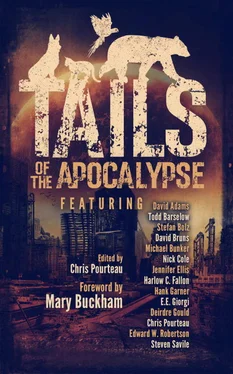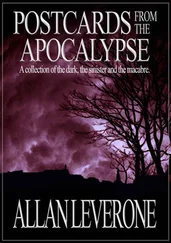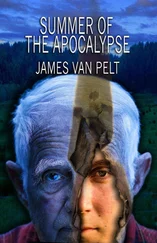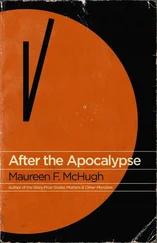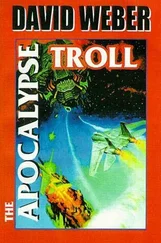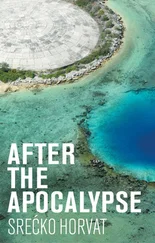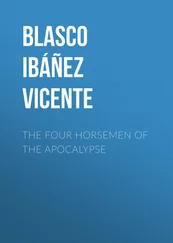When they didn’t come back, he left his hiding place and followed their scent along the banks of the creek until he reached the settlement. His nose caught the sweet smell of death before he found its source.
Half the huts were burned to ashes. Slain bodies lay on the ground, limbs ripped from their torsos. There was no sign of the boys. No sign anywhere. He sniffed at each tent, each hut that still stood, and even the remnants of all the burned ones. He found the younger boy along the lakeshore, ten feet from the water’s edge. Half the boy’s arm was missing. His lifeless eyes stared into the sky. The cub’s howl echoed across the water.
He picked up the older boy’s scent at the edge of the green surrounding the lake. He followed it into the tundra, the pain in his heart as wide as the land that lay before him, as vast as his hope for the boy’s safety. The stars stood cold against the darkened sky that night, and he felt immeasurably small below them.
The next day brought rain. It washed away the scent, leaving no trace of it behind. For seven months, he searched the steppe. He traveled far to the east until he reached the mountains. From there he went west, through the swamps and the lowlands. Twice he came upon another settlement. Perhaps the boy had joined one of those packs. But he didn’t dare go near them to see, though he so desperately wanted to. He remembered the lesson of his pack. He remembered how much humans loved wolf meat.
Except for a slight limp in his right front leg, he became strong and fast and a fierce hunter. His scorched fur grew back in, and save for a streak of black skin, a ghost of his burning, it stood thick and warm against the winter. He learned how to fish in the narrow creek beds and hide from the packs of hyenas at night. He learned to be a shadow in the dark. The cub had become a wolf.
* * *
Jack and the others had fled across the plains and toward the mountains. There were twenty-eight of them left. First, they’d run from the fire. Now they ran from those who hunted them. They’d found a small plateau in the hills, protected by a steep, narrow incline in front and sheer cliffs in back. They stayed there for a few months. It reminded Jack of the small hollow he’d found for the cub. And as he had then, the survivors clung close to the rocks, protected by them, until the wounded were able to walk again.
But as the nights grew colder and food once again became scarce, they left their refuge and made their way along the green river at the edge of the desert. The rocky landscape made it difficult for anyone following to spot them. At the same time, the rough ground slowed their progress to a few miles per day.
One night, Jack overheard the men talking about a settlement, a stronghold where they would find safety and food and warmth. The mountains on the horizon came closer each day. Yet, they seemed unreachable in Jack’s mind, standing distant and mocking him with false hope, a promise of safety never to be fulfilled.
Seven moons ago, Manny had taken his hand and pulled him to safety when the dark figures charged into their makeshift camp. The boys had risen early and snuck into the kitchen hut to steal a bowl of wheat porridge for the cub. From there, they’d seen the shadows moving through the fog that stretched across the lake at dawn.
The intruders were cloaked in dark robes, hoods pulled over their heads, and armed with long, curved swords that gleamed in the early light. One minute the camp lay sleepy and quiet alongside the water’s edge; the next, chaos reigned. The attackers set fire to the huts to force out the ones sleeping inside, then cut down anyone who escaped the burning. They slaughtered his fellow villagers right in front of him, and Jack knew the cloaked invaders weren’t merely after their food—they were after them . Through the smoke that filled the air, Manny took his hand and pulled Jack away and toward the shore and safety.
“We’ll swim out,” he said. “We’ll be safe out there.”
Only a few feet before they reached the water, Jack felt his brother’s grip release as the sword cut across Manny’s back. With a cry cut short, his twin fell to the ground. Jack stumbled on, driven by terror, the screams of his fellow villagers echoing across the lake. When he looked back, he saw the cloaked man kneeling next to Manny, lifting his brother’s arm up and pulling it toward his own mouth, teeth bared.
Pain gripped Jack’s heart as he fled. He wished he could’ve found the courage to return to his brother’s side. But the way Manny had slumped to the ground made Jack certain he was dead.
Tears stung his eyes and blurred his vision as he ran as fast as he could along the edge of the water to where the lake became swampland. From there he went east, and following the high grass, Jack circled the settlement. He stayed low to the ground, running from one boulder to the next for cover.
Jack had found the other survivors a few hours later. The small group, mostly women and children, huddled against a large, rock outcropping, tending to the wounded. The few men remaining were too old to be warriors. None had brought more than they wore on their backs. A few had knives, and one carried a small bow. From that day until this one, they’d lived their lives on the run.
* * *
Jack grabbed the quiver he’d made from the furs of muskrats he caught by the river. He’d made it his mission to look for long, thin sticks he could cut into spears for fishing. During the last few months, he’d become one of the group’s main food providers. Jonu, one of the older women, taught him how to set traps for animals, and Carrie, a girl only two years older than him, showed him how to use the spears to catch fish. She’d stand completely still in the center of the stream, holding the spear above the water, then drive it through an unwary swimmer.
Now they fished and hunted together. Carrie let Jack use her knife to whittle the sticks into spears. It was important not to make the tip too long and thin, or it would break. Too short a tip would leave the spear dull and unusable. They figured out how to attach sharp pieces of narrow and pointy stone to the tips to make them more effective.
Carrie knew that Jack and Manny had been brothers. Every once in a while, she’d ask Jack if he still thought of his twin. He’d simply nod his head and continue with whatever task he was working on.
Jack wanted to talk to her about Manny, wanted to tell her all about him and how they’d found the cub and brought it food each day. But he was afraid he would start to cry. So he kept silent, even though he suspected she’d understand.
“When we reach the stronghold,” Jack said, “I would like to find a stream and build a dam in it and name it after Manny.”
“I like that idea,” Carrie replied.
She was shouldering a spear with four fish stacked on it. As long as he’d known her, she always wore her hair long and braided. About a month before, she’d come to him, handed him her knife, and told him to cut off the braid as close to her head as possible. He didn’t want to do it at first, but she told him it was getting knotted and filthy and she couldn’t take it anymore. So she sat down on a rock in front of him, and he cut her hair while tears ran down her cheeks.
To lay his palm on her head felt strange. He’d touched her hands before, but that was necessary touching, when his hands were tools that helped her up onto a boulder or pulled her out of a deeper part of a creek. But Jack had never touched her like this.
Despite the dirt, her hair was soft, and he felt the warmth of her head under his hand. When he saw Carrie crying over her lost braid, he wanted to hug her and hold her, but he could only bring himself to pick up the braid from the ground and hand it to her. After that, her hair always stood up in all directions.
Читать дальше
